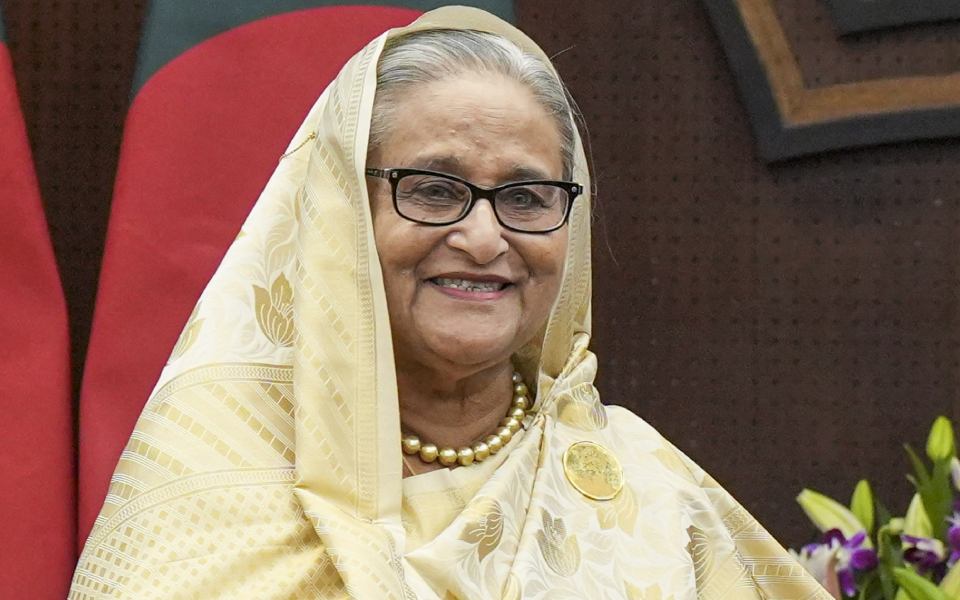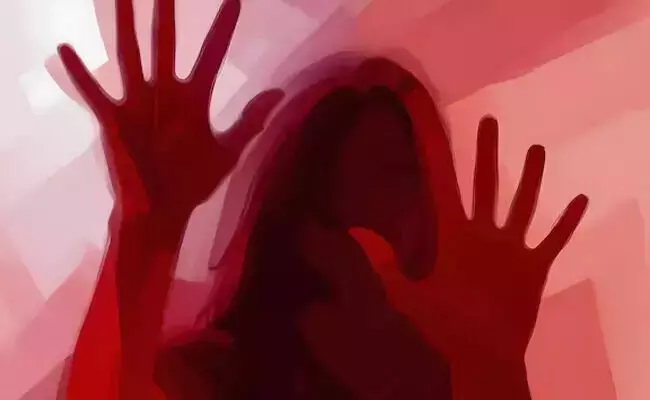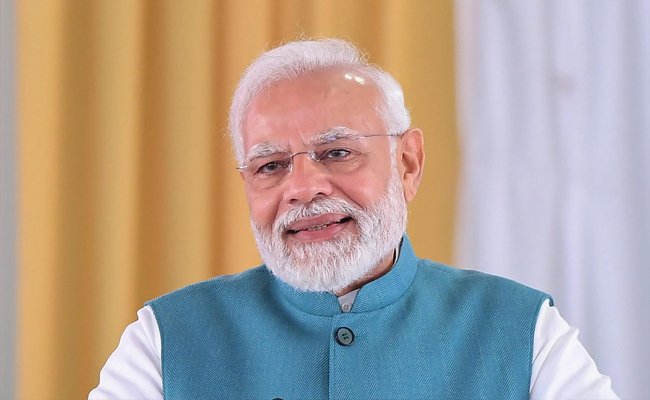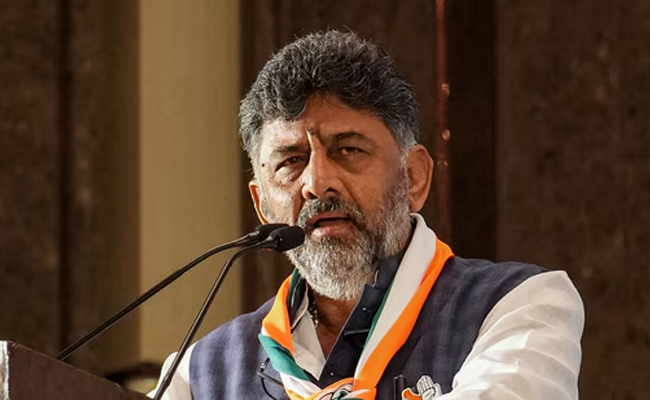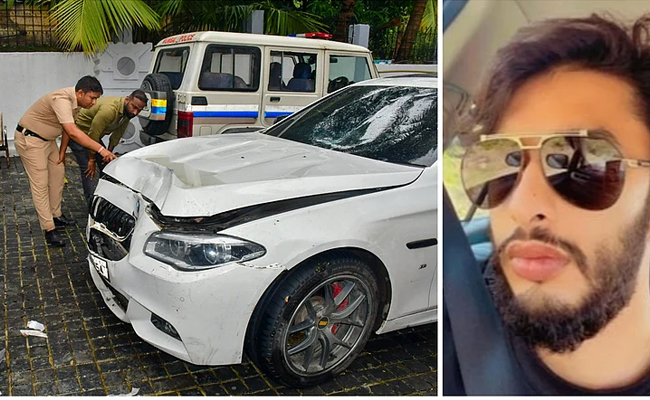Dhaka, Aug 1: Bangladesh on Thursday banned the Jamaat-e-Islami and its student wing Islami Chhatra Shibir under anti-terrorism law following nationwide unrest over the quota system for government jobs, accusing the fundamentalist party of instigating protests that left at least 150 people dead.
A notification issued by the Public Security Division of the Ministry of Home Affairs on Thursday confirmed the ban on the Islamist party, a key ally of former prime minister Khaleda Zia's Bangladesh Nationalist Party.
The ban on Jamaat, Chhatra Shibir and other associated groups came through an executive order under Section 18(1) of the Anti-Terrorism Act.
"They (Jamaat-Shibir and BNP) just used the students as their shield," Prime Minister Sheikh Hasina said on Thursday when Italian Ambassador Antonio Alessandro called on her at her official residence Ganabhaban here.
A Home Ministry spokesman said that the government on August 1 banned all political activities of Bangladesh Jamaat-e-Islami and its various wings.
The Bangladesh government on Tuesday decided to ban the Jamaat-e-Islami following the deadly nationwide students’ protests over quotas in government jobs, accusing it of exploiting the movement that left at least 150 people dead.
The development comes after a meeting of the ruling Awami League-led 14-party alliance passed a resolution earlier this week that Jamaat must be banned from politics.
The decision to ban Jamaat comes over 50 years after its initial prohibition in 1972 for "misusing religion for political purposes".
The Jamaat opposed Bangladesh's 1971 independence from Pakistan and sided with the Pakistani troops during the Liberation War.
The party, founded in 1941 in undivided India, was first banned in 1972, the year Bangladesh framed its Constitution, which disbanded the functioning of any association or union or political party based on religion.
But the subsequent military government led by General Ziaur Rahman revoked the ban by issuing a martial law proclamation, which allowed Jamaat to refloat and years later became a crucial partner of the then prime minister Khaleda Zia’s 2001-2006 four-party alliance government. Two senior Jamaat leaders were inducted into her cabinet.
Top leaders of the ruling Awami League, who have been in power for the past 15 years, have supported the ban on the Jamaat because of its role in the Liberation War.
The Jamaat remained active despite losing its registration and being barred from elections due to court rulings.
The party was allegedly involved in the recent violence surrounding the protests of the quota reform movement, which the government has cited as a reason for the ban, the report added.
Violence gripped Bangladesh for almost the entire of July when the protests that had started in universities and colleges earlier this month, quickly turned into a widespread agitation against Prime Minister Hasina and her government’s policies.
The government called in the Army to quell protests against job quotas after the unrest left at least 150 dead and several thousand people, including policemen, wounded and major government installations damaged.
Law Minister Anisul Huq said on Tuesday the ban is being imposed because of the recent violence associated with the quota reform movement and will be enacted through an executive order.
He said the students who waged a movement demanding reforms in quota system said they had no link to the violence while evidence was there that Jamaat, its student wing Islami Chhatra Shibir, BNP and a part of its students front Chhatra Dal carried out the mayhem.
"From now on, the party cannot carry on its politics using its name,” he told reporters on Thursday.
Home Minister Asaduzzaman Khan Kamal said any violent reaction to the decision by the party would be dealt with severely as security agencies were ordered to enforce a stricter vigil.
Bangladesh in 2009 initiated a process to try the key collaborators of Pakistani troops in 1971 on charges of crimes against humanity and six top leaders of Jamaat and one of BNP were hanged after their trial in two special war crimes tribunals while the apex Appellate Division of the Supreme Court upheld the judgments.
Let the Truth be known. If you read VB and like VB, please be a VB Supporter and Help us deliver the Truth to one and all.
Gorakhpur (PTI): A hospital employee was booked for allegedly sexually assaulting a woman in the pretext of an ultrasound test here in the district women's hospital, police said on Saturday.
According to the complaint, the woman, a resident of the Gulriha area, visited the district women's hospital on Thursday morning for an ultrasound test.
She was directed to a room, where Abhimanyu Gupta was conducting ultrasounds. When her turn came, the accused allegedly stared at her and told her to remove all her clothes, claiming it was necessary for the test and that a massage would also be required, she said.
ALSO READ: UP: Girl kidnapped, raped multiple times over 25 days; accused held
The woman alleged that once she complied, the accused began making obscene advances and tried to force himself on her. When she screamed, he allegedly gagged her, abused her and threatened to kill her before pushing her out of the room.
She said her complaints within the hospital went unheard, forcing her to approach the police.
Taking cognisance of the complaint, the hospital administration constituted a three-member inquiry committee, officials said.
Senior consultant (paediatrics) Dr Jay Kumar said, "The woman has levelled serious allegations against a staff member. Senior officials have been informed, and a departmental inquiry is underway. Strict action will be taken if the charges are proved."
Kotwali Station House Officer Chatrapal Singh said a case has been registered, and efforts are on to nab the accused.

